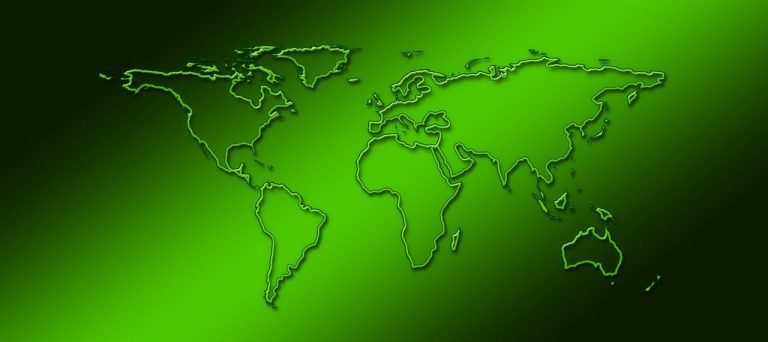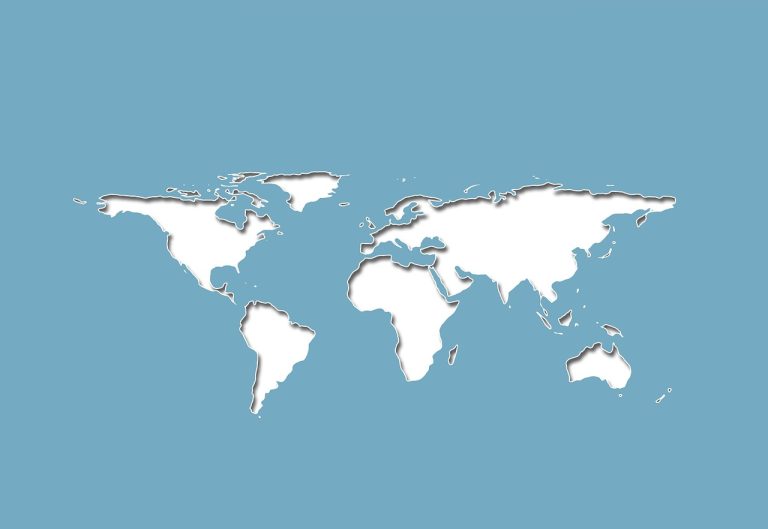
The Impact of Philippine’s Latest Anti-Corruption Measures: An In-depth Analysis
Corruption has long been a significant challenge for the Philippines, affecting its economic growth, governance, and public trust. In recent years, the country has taken bold steps to address this issue through the implementation of comprehensive anti-corruption measures. This article delves into the latest strategies adopted by the Philippines, their impact, and the challenges that lie ahead.
An Overview of the Anti-Corruption Landscape in the Philippines
The Philippines has consistently ranked poorly in global corruption indices, which has spurred both national and international calls for reform. The government’s response has been a multi-faceted approach that involves legislation, public sector reforms, and civic engagement. Key institutions like the Office of the Ombudsman and the Commission on Audit play pivotal roles in enforcing these measures.
Legislative Measures and Policy Reforms
One of the cornerstone pieces of legislation is the Anti-Graft and Corrupt Practices Act, which provides a legal framework for identifying and prosecuting corrupt activities. Recent amendments to this act have expanded its scope, making it more robust and inclusive. Additionally, the Freedom of Information Act has been instrumental in promoting transparency by allowing citizens to access government records.
A notable policy reform is the implementation of the “Ease of Doing Business” law, aimed at reducing bureaucratic red tape and minimizing opportunities for corruption in business transactions. This law mandates government agencies to streamline their processes, thereby fostering a more efficient and transparent business environment.
The Role of Technology in Combating Corruption
Technology has emerged as a powerful tool in the fight against corruption. The Philippine government has invested in digital platforms to promote transparency and efficiency. For instance, the Government Electronic Procurement System (GEPS) allows for more transparent and accountable public procurement processes.

Moreover, the use of blockchain technology in land registration and property transfers is being explored to prevent fraudulent activities. This innovative approach not only secures transactions but also builds public confidence in government processes.
Challenges in Implementing Anti-Corruption Measures
Despite these advancements, several challenges persist. One major obstacle is the deeply entrenched political patronage system, which continues to protect corrupt officials from prosecution. Additionally, there is a need for more rigorous enforcement of laws and stronger penalties for offenders to serve as effective deterrents.
The judicial system also faces significant backlogs, which delay the prosecution and resolution of corruption cases. This often results in prolonged legal battles that can discourage whistleblowers and undermine public confidence in the justice system.
The Role of Civil Society and International Cooperation
Civil society organizations play a crucial role in advocating for transparency and holding the government accountable. These groups have been instrumental in raising awareness and mobilizing public support for anti-corruption initiatives. Collaborative efforts with international bodies such as Transparency International provide additional support and resources for these initiatives.
International cooperation also extends to bilateral and multilateral agreements that aim to curb cross-border corruption and money laundering. These partnerships are essential in addressing the global dimensions of corruption, which often involve complex financial networks.
Case Studies: Successes and Lessons Learned
Several case studies highlight the successes and challenges of the Philippines’ anti-corruption measures. The prosecution of high-profile cases, such as the conviction of former government officials for graft, serves as a testament to the effectiveness of these measures. However, these successes also underscore the need for continued vigilance and reform.
A critical lesson learned is the importance of sustained political will. Anti-corruption initiatives often face resistance from powerful groups with vested interests. Therefore, maintaining momentum and public support is crucial for long-term success.

The Future of Anti-Corruption Efforts in the Philippines
Looking ahead, the Philippines must continue to innovate and adapt its anti-corruption strategies. This includes enhancing the capabilities of key enforcement agencies, fostering greater public-private partnerships, and integrating more advanced technologies.
The ongoing challenge will be to balance the need for rapid reform with the complexities of the political and social landscape. Nevertheless, the Philippines’ commitment to combating corruption remains steadfast, as evidenced by its proactive approach and continuous efforts to improve governance.
Takeaways
The impact of the Philippines’ latest anti-corruption measures is significant, reflecting a comprehensive approach that combines legislative action, technological innovation, and civic engagement. While challenges remain, the country’s progress offers valuable insights and hope for a more transparent and equitable future. Continued support from both domestic and international stakeholders will be essential in sustaining these efforts and building a culture of integrity and accountability.
Engaging the Youth in Anti-Corruption Initiatives
The involvement of the youth is pivotal to the long-term success of anti-corruption measures. Young people, being the largest demographic group in the Philippines, wield significant influence and potential for change. Educational programs that focus on ethics and integrity are being integrated into school curricula to instill these values from an early age.
Furthermore, youth-led organizations are actively participating in anti-corruption campaigns, leveraging social media platforms to raise awareness and mobilize action. These digital-savvy individuals are adept at using technology to monitor government activities and report irregularities, providing a fresh perspective and renewed energy to the anti-corruption movement.
The Importance of Media Freedom
A free and independent media is crucial in the fight against corruption. Investigative journalism has been instrumental in uncovering corruption scandals and holding public officials accountable. However, media practitioners in the Philippines often face threats and harassment, which can stifle their ability to report freely.

To support media freedom, legal protections for journalists must be strengthened, and efforts to combat misinformation should be prioritized. Partnerships with international media organizations, such as the Committee to Protect Journalists, can provide additional safeguards and resources for local journalists.
Evaluating the Economic Impact of Anti-Corruption Measures
The economic benefits of reducing corruption are manifold. Transparency and accountability can enhance investor confidence, leading to increased foreign direct investment (FDI) in the country. Moreover, efficient government processes reduce costs and improve the overall business climate, fostering economic growth and development.
Empirical studies have shown that countries with lower levels of corruption tend to have stronger economic performance. The Philippines’ efforts to combat corruption are thus not only a moral imperative but also an economic strategy aimed at sustainable development.
Community-Based Approaches to Combat Corruption
Grassroots initiatives are essential in addressing corruption at the local level. Community watchdog groups empower citizens to monitor public projects and expenditures, ensuring that funds are used appropriately. These groups often work in collaboration with local governments to promote transparency and accountability.
Such community-based approaches are effective because they encourage citizen participation and foster a sense of ownership over public resources. They also serve as a check on local officials, reducing opportunities for corruption and misuse of funds.
Developing a Culture of Accountability
Ultimately, the success of anti-corruption measures hinges on developing a culture of accountability. This requires a shift in societal norms and attitudes towards corruption, where ethical behavior is rewarded and misconduct is condemned.
Public awareness campaigns and educational initiatives play a critical role in this cultural transformation. By promoting the values of integrity and accountability, these efforts contribute to a more transparent and just society.
Conclusion: A Path Forward

The Philippines’ latest anti-corruption measures represent a significant step forward in addressing a longstanding issue. While challenges remain, the country’s commitment to transparency and accountability is evident in its comprehensive approach and innovative strategies.
The path forward involves continued collaboration between the government, civil society, and international partners. By fostering a culture of integrity and leveraging technology and community engagement, the Philippines can build a more equitable and prosperous future for its citizens.
As the country navigates this journey, it remains critical to maintain the momentum of reform and ensure that anti-corruption efforts are inclusive, effective, and sustainable. With persistent effort and collective action, the fight against corruption can lead to meaningful change and a brighter future for the Philippines.
Strengthening Institutional Frameworks
For anti-corruption measures to be effective, the institutional frameworks that support them must be robust and resilient. Strengthening these frameworks involves not only enhancing the capabilities of existing institutions but also ensuring that they operate independently and without undue influence.
The independence of agencies such as the Ombudsman and the Commission on Audit is crucial. These bodies must have the autonomy to conduct investigations and audits without political interference. Ensuring adequate funding and resources for these institutions is also vital, as it enables them to fulfill their mandates effectively.
International Best Practices and Learning
The Philippines can benefit from adopting international best practices in anti-corruption efforts. Learning from other countries that have successfully reduced corruption can provide valuable insights and strategies. For example, the implementation of national integrity systems, as seen in some Scandinavian countries, could offer a blueprint for enhancing transparency and accountability.
Participation in international anti-corruption forums and conventions, such as the United Nations Convention against Corruption (UNCAC), also facilitates knowledge exchange and cooperation. These platforms provide opportunities to share experiences, challenges, and solutions, fostering a collective approach to combating corruption globally.

Encouraging Whistleblower Protection
Whistleblowers play a critical role in uncovering corruption and promoting accountability. However, they often face significant risks, including retaliation and job loss. To encourage more individuals to come forward, the Philippines must strengthen its whistleblower protection laws. These laws should provide adequate safeguards and incentives for whistleblowers, ensuring their safety and livelihood.
Implementing anonymous reporting mechanisms and offering rewards for information leading to successful prosecutions can further incentivize whistleblowing. By creating a supportive environment for whistleblowers, the government can enhance its efforts to detect and deter corrupt activities.
The Role of Education in Fostering Integrity
Education is a powerful tool in shaping attitudes and behaviors towards corruption. Integrating ethics and integrity into the education system can cultivate a culture of honesty and responsibility among future generations. Schools and universities should incorporate anti-corruption modules into their curricula, emphasizing the importance of transparency and ethical conduct.
Beyond formal education, public awareness campaigns and community workshops can further reinforce these values. By educating citizens about their rights and responsibilities, these initiatives empower individuals to demand accountability and resist corrupt practices.
Conclusion: Sustaining the Momentum
The journey towards eradicating corruption in the Philippines is a complex and ongoing process. While significant progress has been made through recent measures, sustaining the momentum requires continued commitment and collaboration from all sectors of society.
The combined efforts of the government, civil society, private sector, and international partners are essential in building a resilient anti-corruption framework. By fostering a culture of integrity and leveraging innovative solutions, the Philippines can pave the way for a brighter, more transparent, and equitable future.
Ultimately, the fight against corruption is not just about changing systems and structures but also about transforming mindsets and behaviors. As the Philippines continues to strive for good governance and accountability, it sets an inspiring example for other nations grappling with similar challenges.






